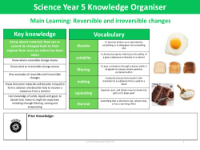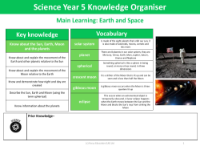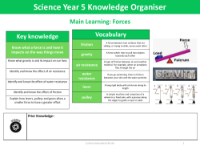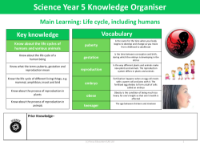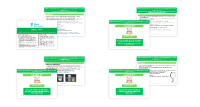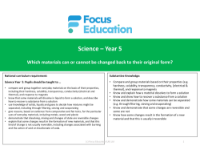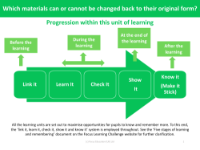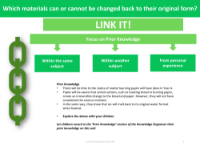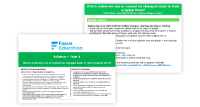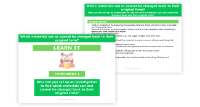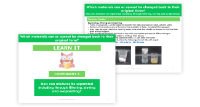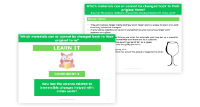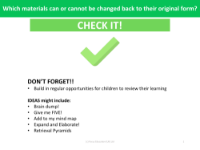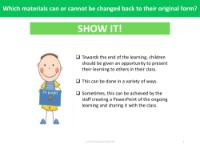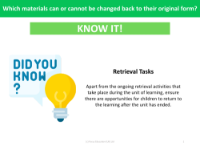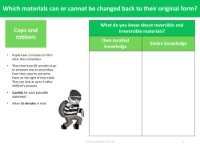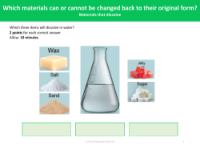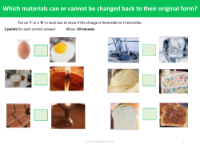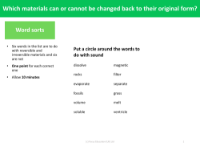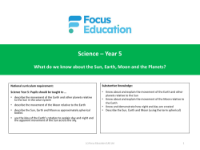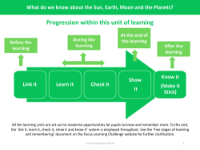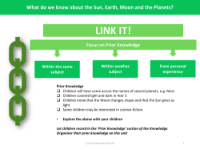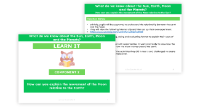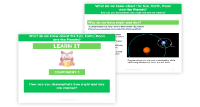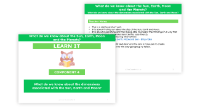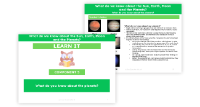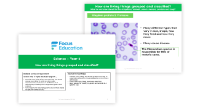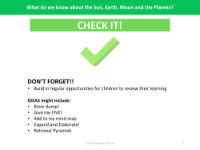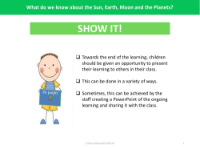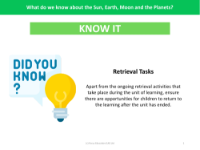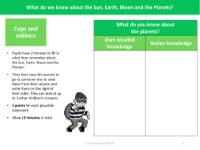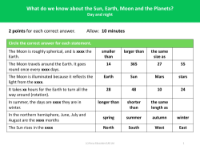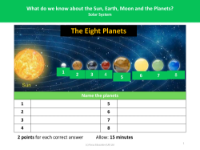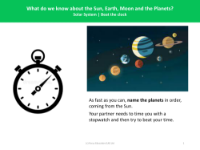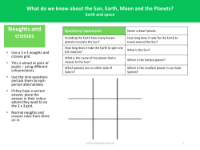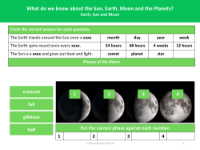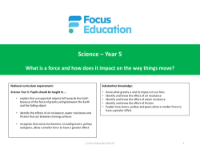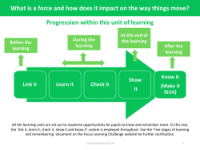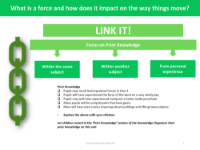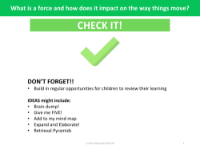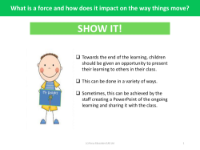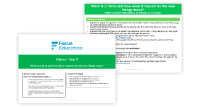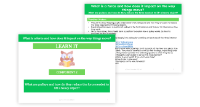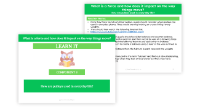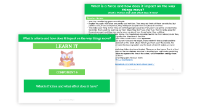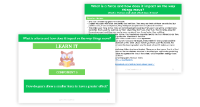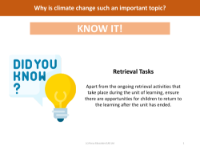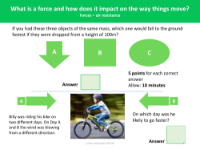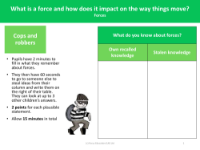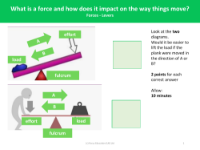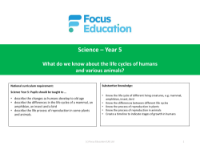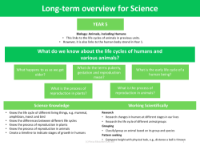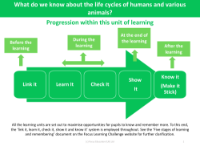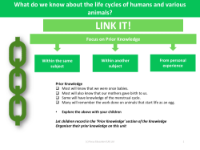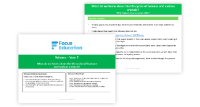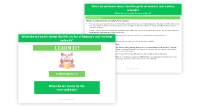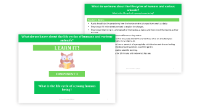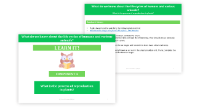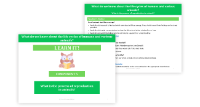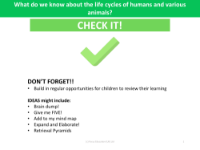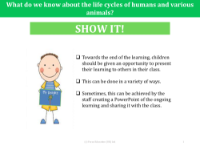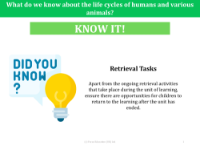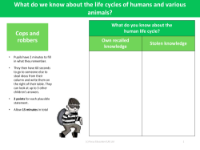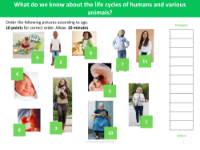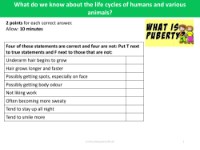Science - Year 5 - Focus Education
What does the Year 5 scheme cover?
Focus Education prioritises equipping teachers with the essential tools to deliver exceptional Science lessons, ensuring remarkable outcomes for pupils. Utilise hands-on observations, experimentation and exploration as integral components of working scientifically through the specific disciplines of biology, chemistry and physics, and foster a lasting appreciation of the structure and behaviour of the biological and physical aspects of the world around us.
Reversible and Irreversible Changes
Compare and group materials based on their properties and demonstrate that some changes are reversible and some are not in this unit. As you explore these changes, design your own investigations and consider what has made it fair. Plan and evaluate experiments focussing on separating, filtering and dissolving, and document your findings through diagrams and conclusions. Take on the role of a detective, delving into how scientific understanding of irreversible changes has contributed to crime-solving.
Key questions answered:
- What does reversible and irreversible changes mean?
- How can you set up an investigation to find which materials can and cannot be changed back to their original state?
- How can mixtures be separated, including through filtering, sieving and evaporating?
- How has the science related to reversible and irreversible changes helped with crime work?
Earth and Space
Use your prior learning on light and dark as a starting point during this unit, and further develop your knowledge of the Earth, Sun and the planets. Explore the concepts of rotation and revolution and investigate why the Moon changes shape during each month. Understand how the Earth moves around the Sun and how the Moon moves around the Earth, and create your own model to explain the relationship between the Earth, Sun and Moon.
Key questions answered:
- Can you explain the movement of the Earth and other planets relative to the Sun?
- Can you explain the movement of the Moon relative to the Earth?
- Can you demonstrate how night and day are created?
- What do we know about the dimensions associated with the Sun, Earth and Moon?
- What information do you know about the planets?
Forces
Identify and know the impact of gravity and the effects of air resistance and friction as you explore a range of forces and how they impact the ways in which items move during this unit. Understand what pulleys are and how they are used to reduce the force required to lift heavy objects, before conducting your own exploration into the purpose and benefits of using pulleys. Set up an investigation to find out which surface provides the most friction and put together a diagram or a series of diagrams which would help explain how a bicycle works.
Key questions answered:
- What is gravity and what is its impact on our lives?
- What are pulleys and why are they important in our everyday life?
- What is air resistance and what effect does it have?
- What is friction and what effect does it have?
- How do gears allow a smaller force to have a greater effect?
Changes As You Grow
Explore the life cycle of a human being and understand what the terms puberty, gestation and reproduction mean. Consider how the human embryo changes from seed to a baby and explore the development that takes place. As you go through the unit, learn about the process of reproduction in plants and animals too, and find out which animals start life as an egg.
Key questions answered:
- What happens to us as we get older?
- What do the terms puberty, gestation and reproduction mean?
- What is the early life cycle of a human being?
- What is the process of reproduction in plants?
- What is the process of reproduction in animals?
What’s included for Year 5 teachers?
- Full Year 5 National Curriculum coverage
- Detailed lesson plans and presentations
- Visual knowledge organisers for each unit
- Comprehensive assessment materials
- Links to prior and future learning, progression maps & more!
